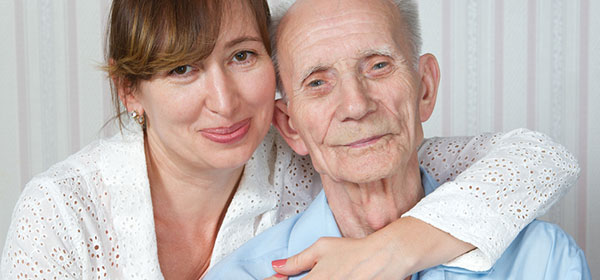Emmanuella
When you notice a parent living at home alone is starting to struggle – as Phillip has – how do you say ‘you might have to move into care’ without starting a war and hurting the parent’s confidence? Clinical psychologist Dr Emmanuella Murray offers advice.
Phillip:
My sister, two brothers and I believe Dad needs to be in care. We fear he may suffer an injury at home – and he is home alone. We touch base with him most days and have suggested we all visit some residential aged-care places, but he resolutely refuses to listen. What’s your advice? Do we just try to keep him as safe as possible and continue the conversation?
A: What a hard place you are in. You all love your father so much, but are concerned for his safety. This is a common struggle for caregivers when an elderly loved one refuses help. Our elderly may have been grappling with life’s ups and downs for some time and to suddenly relinquish this control can be very frightening and daunting for them.
I love that you are touching base with him and trying to involve him in future decisions that concern him. Your instinct is right. Keep him as safe as possible and continue the conversation.
When talking to him about how he is going, try to keep it as relaxed as possible and look for natural opportunities to check in with him. For example, if you notice your dad looks tired after washing the dishes, you might say: “Dad, you’re looking a bit tired, it’s not easy doing the house chores.” See how he responds. If he doesn’t say much, you might self-disclose: “Gosh, we find it hard enough to keep the house clean and there’s four of us. I can’t imagine how hard it is for you.”
If he agrees or gives some version of a nod, then you have done an excellent job at letting your dad know you understand how he is feeling – even if he doesn’t say it out loud. Now it’s the time to offer some options.
You might suggest a housekeeper if your dad is warming to the idea of help, and you may find yourself having several conversations about the same concern. This can be frustrating for all involved but it can open the door for other deeper conversations about eventual residential care, somewhere of his choice, and not too far from you.
In a nutshell, be patient. Consider it an ongoing conversation and remind your dad how much you all love and care for him.
If you have a question for Dr Emmanuella Murray, please send it to newsletters@yourlifechoices.com.au
Dr Emmanuella Murray is a clinical psychologist who has been practising for more than 10 years. She works with children, adolescents, adults and couples and presents to professionals and community groups. Visit her website here.
Related articles:
Budget boost for care
‘What am I not being told?’
Deadly smoke alarms

